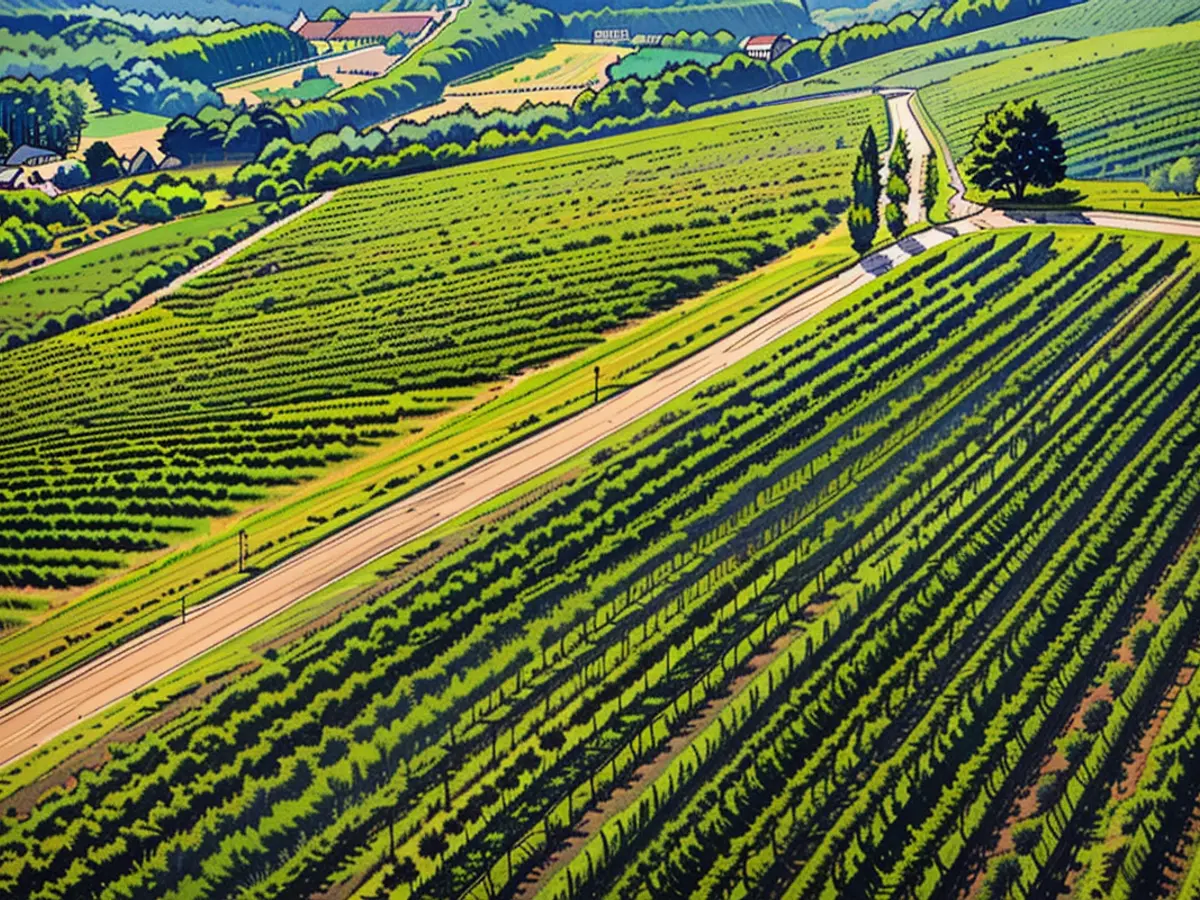- Under the influence of elevated humidity and heat, vineyard laborers face increased "mold-related stress".
Scorching temperatures and occasional heavy downpours have got winemakers in Thuringia on edge about their grapes. Back in April, chilly spells led to total wipeouts in the initial shoots, noted Elke Meinhardt, head of the Thuringian Winegrowers' Association in Bad Sulza. "Now, decay is becoming an issue and we've got to tackle the dampness." The "mold danger" is high.
The fate of this year's grape yield remains uncertain. A whole lot can still change until right before the grape harvest. "We're banking on a splendid late summer to jack up the sugar levels in the grapes." Nevertheless, neither a bumper crop nor top-notch quality is predicted, Meinhardt stated.
Regardless, there's cause for a party: Bad Sulza is hosting the 30th Thuringian Wine Festival this weekend. "Over the past 30 years, we've witnessed extraordinary growth. The wine festival began back then with just two stalls, and now we're expecting thousands of revelers," Meinhardt said.
The Thuringian Wine Princess for the years 2024 and 2025 will also be crowned at the festival. Unlike in Rhineland-Palatinate, there haven't been any significant tussles in Thuringia about modernizing and broadening this ceremonial role to include men. "I think it's okay to engage in the conversation, and I believe it's crucial that this honorary position keeps evolving, but we still have a steady stream of applicants," Meinhardt noted.**
Similarly, the wine-growing region in Thuringia has expanded: It was barely 13 hectares at the start of the 1990s and now covers 147 hectares. Currently, there are four major enterprises spanning 63 hectares, twelve estate-run businesses with self-promotion, 67 small winemakers and grape growers in the secondary sector, and six agricultural firms producing fruits and wine. Primarily, Thuringian vineyards are located in the areas of Bad Sulza and Weimar.
The state government aids winemaking, providing financial assistance for vine planting, equipment purchases, or harvest insurance against climate-related extreme weather damage. This is because winemaking, like other agricultural sectors, is also impacted by climate change consequences. This includes mold outbreaks due to prolonged drought coupled with heavy rain. Some businesses have already switched to so-called Piwi varieties, which are less susceptible to grape diseases like powdery and downy mildew.
Despite the challenges in the grape crop due to weather conditions, the Agriculture sector in Thuringia has seen significant growth. The wine-growing region expanded from barely 13 hectares in the 1990s to covering 147 hectares now, with various large enterprises and small winemakers contributing to this expansion.








